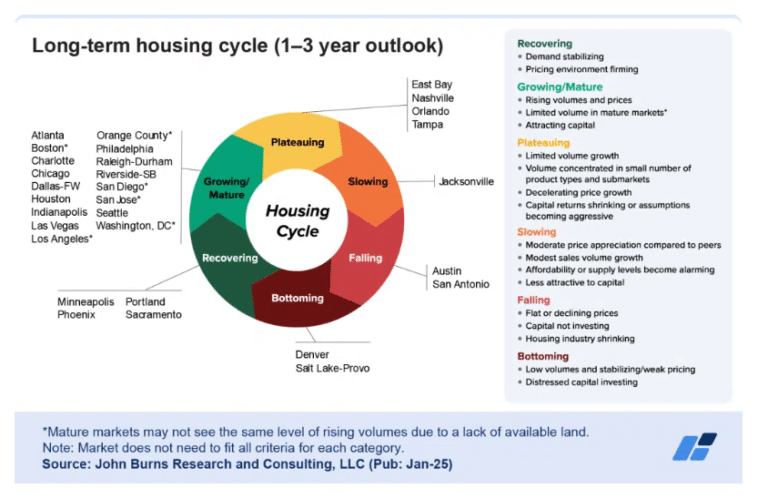Considering Making Property Management a Long-Term Career and Wondering What Income and Performance You Might Expect?
Use this helpful commission calculator to rough out estimates you can plan around.
Independent Broker Property Manager
Earnings Calculator
| Year | Properties | Monthly Income | Annual Income |
|---|
Is a Career as an Independent Property Manager Right for You?
Property management isn't for everyone. It's a fast-paced, hands-on career that demands quick thinking, strong communication skills, and the ability to juggle multiple priorities simultaneously. But for the right person, it offers exceptional income potential, schedule flexibility, and the satisfaction of building something truly your own.
If you're considering becoming an independent broker property manager, understanding what the role entails and how your performance directly impacts your long-term earning potential is crucial. Let's explore who thrives in this industry and why excellence in property management compounds into extraordinary financial rewards over time.
Who Makes an Excellent Property Manager?
The High-Energy Problem Solver
Successful property managers thrive in dynamic environments. You're the person who gets energized by variety, not exhausted by it. One moment you're negotiating a lease renewal, the next you're coordinating an emergency repair, followed by a showing for a prospective tenant. If you need predictability and routine to feel comfortable, property management may feel overwhelming.
The Hands-On Communicator
This career demands constant communication with property owners, tenants, contractors, and vendors. You need to be comfortable picking up the phone, responding to texts and emails promptly, and occasionally handling difficult conversations with grace. The best property managers don't shy away from conflict; they navigate it professionally and find solutions that work for everyone involved.
The Detail-Oriented Multitasker
Managing multiple properties means tracking dozens of moving pieces: lease expirations, maintenance schedules, rent collection, compliance requirements, and owner expectations. You must be organized, attentive to detail, and capable of prioritizing tasks effectively. Missing a lease renewal notice or forgetting a property inspection can cost you thousands in lost revenue.
The Self-Motivated Entrepreneur
As an independent contractor, you're running your own business. Nobody is standing over your shoulder ensuring you follow up with leads or provide exceptional service. You need internal drive, discipline, and a genuine commitment to excellence. The most successful property managers treat every property as if it were their own investment.
The Pros of a Property Management Career
Substantial Income Potential
A career in property management offers significant earning potential that scales with your portfolio size and performance. Managing 100 properties at an 8% commission on $1,600 average rent generates approximately $12,800 in monthly gross commissions—over $150,000 annually before expenses. As you grow your portfolio to 200 or 300 properties, your income scales accordingly.
Flexibility and Autonomy
You control your schedule, choose your clients, and build your business your way. While the work is demanding, you decide when and how you handle most tasks. Need to attend your child's school event? You can typically arrange your day around it. Want to take a vacation? With proper systems in place, you can.
Recurring Revenue Model
Unlike many sales positions where you start from zero each month, property management builds recurring monthly income. Each property you add to your portfolio continues generating revenue month after month, year after year. This creates financial stability and allows you to forecast your income with reasonable accuracy.
Low Barrier to Entry with Support Systems
Modern property management companies provide comprehensive support that dramatically reduces startup costs. Many supply lockboxes, property management software, and handle numerous field tasks, allowing you to focus on tenant relations and owner communication without massive upfront investment.
Relationship-Based Business
You're building genuine relationships with property owners who often become long-term clients. Many property managers work with the same owners for decades, managing their properties as they expand their portfolios. These relationships can be deeply rewarding both professionally and personally.
The Cons of a Property Management Career
Irregular Hours and Emergency Calls
Emergencies don't respect your schedule. When a pipe bursts at 11 PM or a tenant locks themselves out on Sunday morning, you need to respond. While you can establish boundaries and use answering services, you must accept that property management occasionally demands immediate attention at inconvenient times.
Challenging Tenant Situations
You will deal with difficult tenants. Late rent payments, property damage, neighbor disputes, and evictions are part of the job. While most tenants are reasonable, the challenging ones can be emotionally draining and time-consuming. You need thick skin and the ability to enforce policies without taking things personally.
Owner Expectations Management
Some property owners have unrealistic expectations about rental rates, property conditions, or vacancy periods. You'll need to educate owners diplomatically, set appropriate expectations, and occasionally decline to work with owners whose demands are unreasonable. This requires strong communication skills and confidence in your expertise.
Income Variability in Early Stages
Building a property management portfolio takes time. Your first year may be financially challenging as you invest in marketing, build your reputation, and gradually add properties. Most successful property managers experience lean months before reaching a comfortable income level.
Administrative Burden
Despite technology, property management involves significant administrative work: processing applications, coordinating inspections, managing maintenance requests, handling accounting, and maintaining compliance with regulations. If you dislike paperwork and systems management, this aspect can feel tedious.
Performance: The True Differentiator in Property Management Income
Here's the reality that separates mediocre property managers from highly successful ones: your performance dramatically impacts not just your current income, but your ability to build lasting wealth in this industry.
The Compound Effect of Low Vacancy Rates
Consider two property managers, both managing 100 properties at $1,600 average rent with 8% commission:
Average Performer (7% vacancy rate):
High Performer (2% vacancy rate):
That's an additional $7,680 annually from the same 100 properties—simply by keeping units occupied. High performers don't just earn 15-25% more through lower vacancy; they demonstrate their value to property owners in the most tangible way possible.
Retention: Where Real Wealth Is Built
Here's what many new property managers fail to grasp: the real money in property management isn't in acquiring accounts—it's in retaining them for years or even decades.
When you acquire a new property, you invest significant time and effort: marketing, initial meetings, property assessment, onboarding, and establishing systems. You might spend 10-15 hours securing that first property from a new owner.
But once that property is under management, retaining it requires only consistent excellent service. And when that owner acquires a second, third, and fourth property, who do they call? The property manager who's already proven their worth.
The 10-Year Value Calculation
Let's examine the true value of a single property relationship over time:
Single Property: $1,600/month rent, 8% commission
But successful property managers rarely manage just one property per owner. As real estate investors grow their portfolios, they bring all their properties to the manager they trust.
Property Owner Portfolio Growth: 1 property → 5 properties over 10 years
From a single owner relationship, you've generated over $50,000 in commission revenue. And many property managers work with owners for 15, 20, or 25 years.
Performance Creates Retention
Here's the critical connection: high performers retain accounts at dramatically higher rates.
When you consistently maintain low vacancy rates, respond promptly to concerns, handle difficult situations professionally, and protect the owner's investment, you become indispensable. Owners don't leave excellent property managers. They expand their portfolios knowing they have someone reliable managing their assets.
Conversely, mediocre performers experience constant client churn. They're always replacing lost accounts, never building the compounding benefit of long-term relationships. They work twice as hard for half the income because they must continuously acquire new business rather than nurturing and expanding existing relationships.
The Referral Multiplier
High-performing property managers benefit from another compounding effect: referrals. Satisfied property owners talk to other investors. One excellent client can lead to three or four referrals over the years. These referred clients come pre-sold on your services, making them easier to close and more likely to be quality long-term relationships.
Average performers rarely generate substantial referrals. Why would an owner who's experienced mediocre service recommend that manager to their investor friends?
The Numbers Don't Lie
Let's compare two property managers over a 10-year career:
Average Performer:
High Performer:
Same effort in acquiring new accounts. Dramatically different outcomes. The high performer earns nearly three times more because they've retained clients and benefited from portfolio expansion and referrals.
Excellence Is the Only Path to Sustainable Success
This job isn't as easy as many think it is. Property management can appear deceptively simple: collect rent, coordinate repairs, and find tenants. But the difference between adequate and excellent is vast—and it shows up in your bank account year after year.
The property managers who build six-figure incomes and create true financial freedom aren't the ones who cut corners or provide merely acceptable service. They're the ones who respond to maintenance requests within hours, not days. They fill vacancies in weeks, not months. Communicate proactively with owners, preventing problems before they escalate. In short, they treat every property like it's their own investment.
See: "Why We Pivoted to a Commission-Based Account Manager Model
Your performance today determines not just this month's commission, but whether you're building a sustainable, growing business or constantly running on a hamster wheel of client acquisition and replacement.
Is Property Management Right for You?
If you're energized by fast-paced, hands-on work, thrive on building relationships, can handle the occasional 9 PM emergency call, and are committed to genuine excellence, property management offers extraordinary opportunity.
The income potential is substantial and scales with your effort and skill. The flexibility is real, though it comes with responsibility. And for those willing to excel rather than just participate, the compounding benefits of long-term client relationships can build significant wealth over time.
But if you need predictable 9-to-5 hours, struggle with difficult personalities, or aren't genuinely committed to going above and beyond, this career will frustrate you and likely won't generate the income you're hoping for.
Property management rewards excellence disproportionately. Average performers earn average incomes. Exceptional performers build thriving businesses that generate six-figure incomes and create genuine financial independence.
The choice—and the commitment to excellence—is yours.










